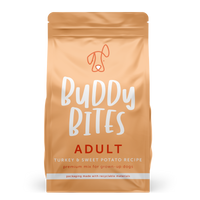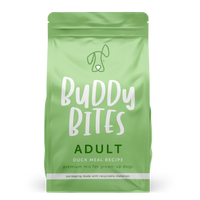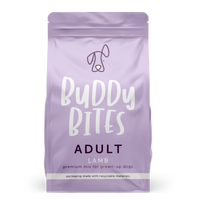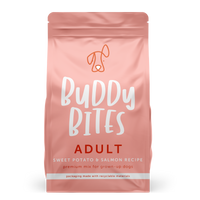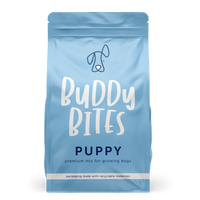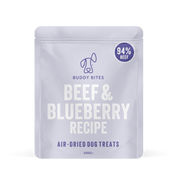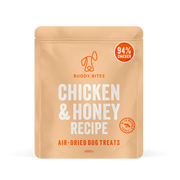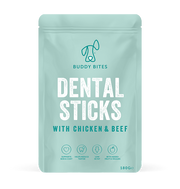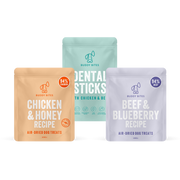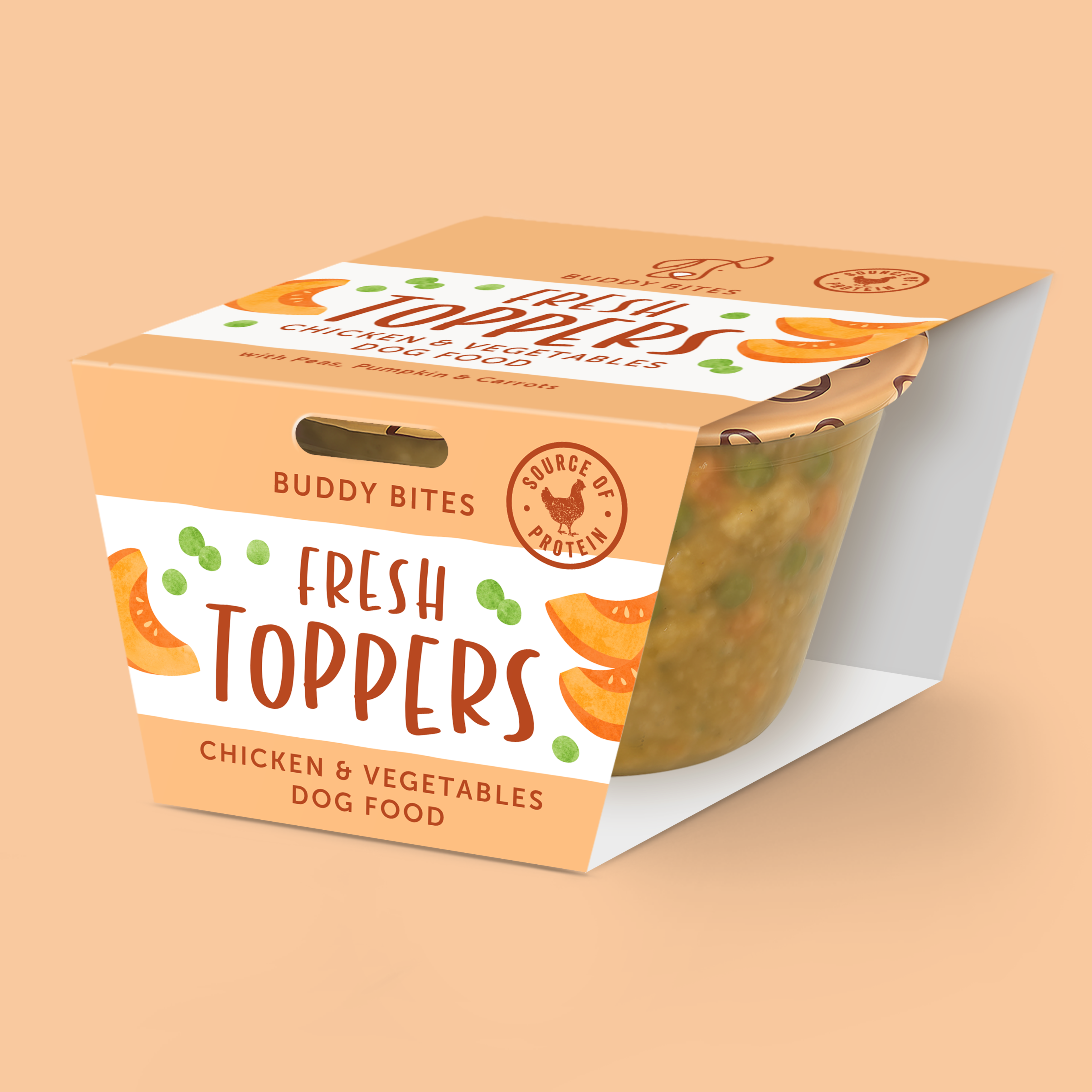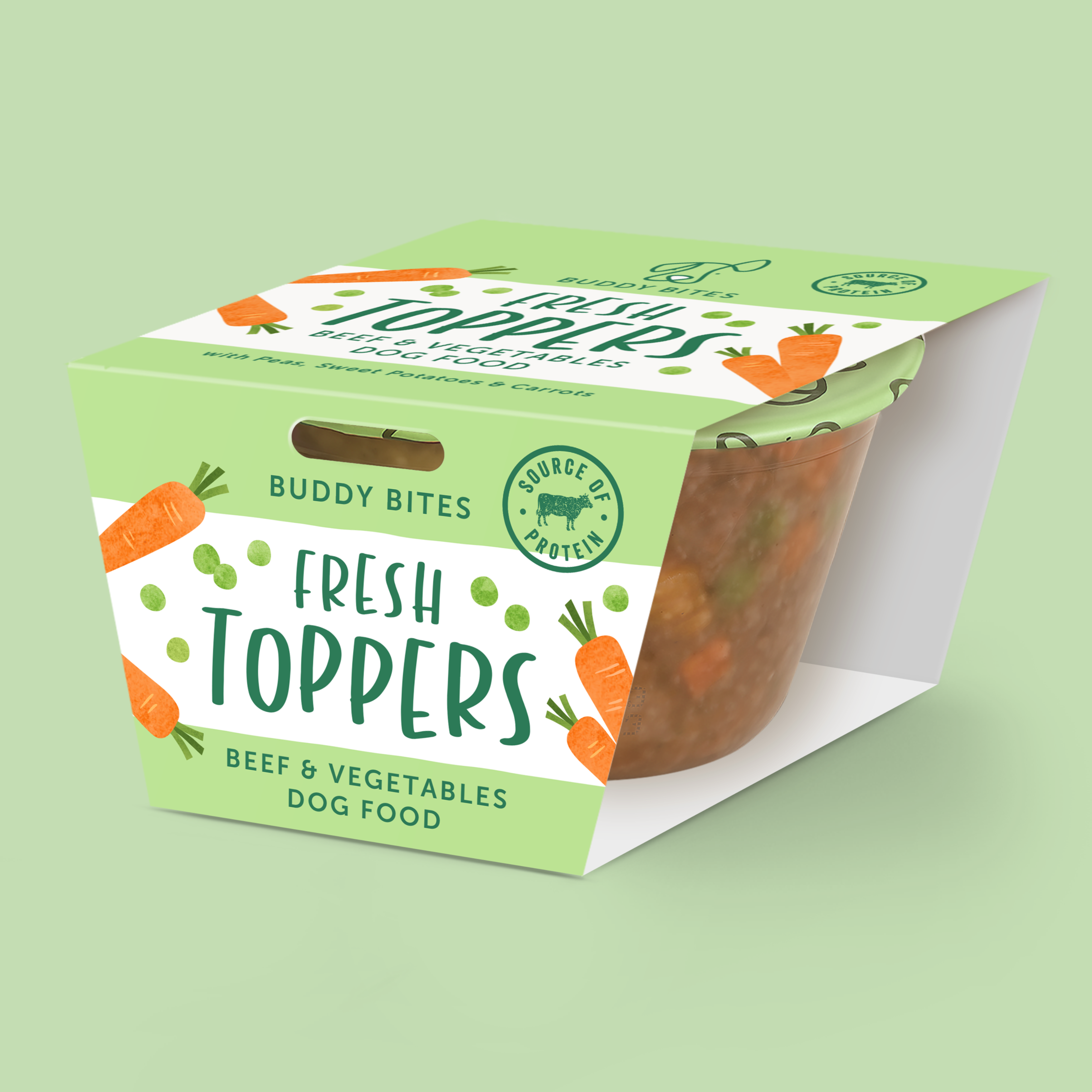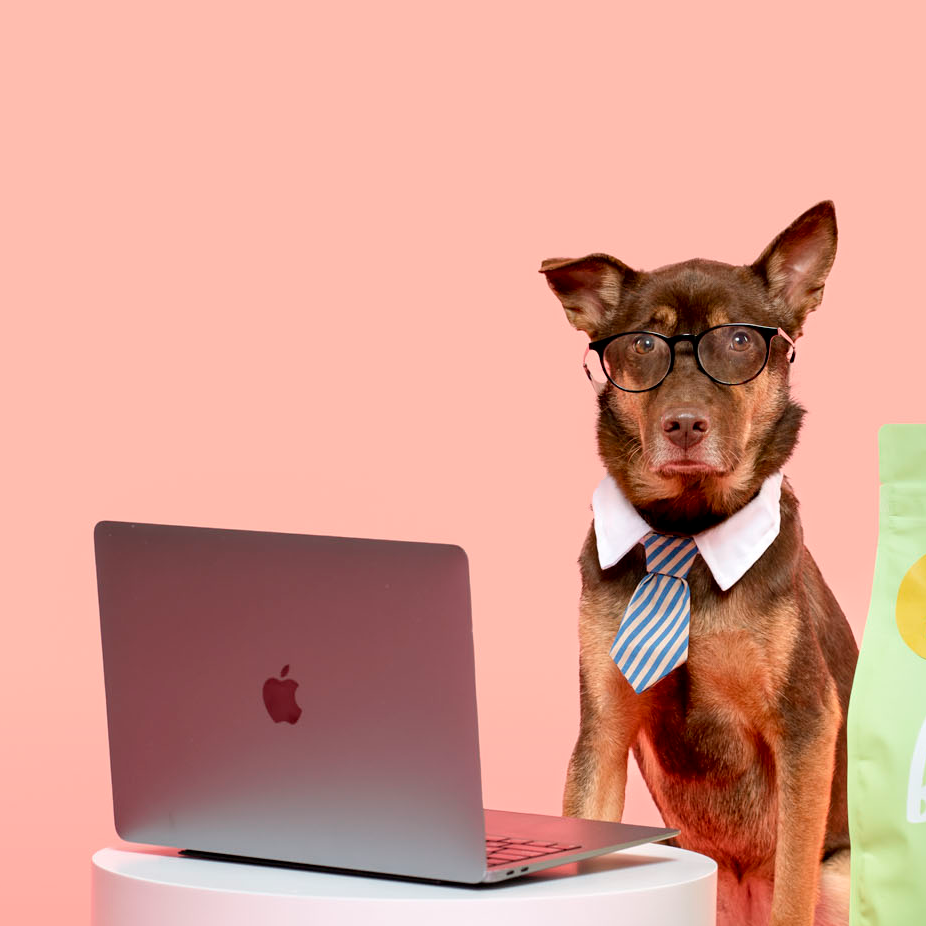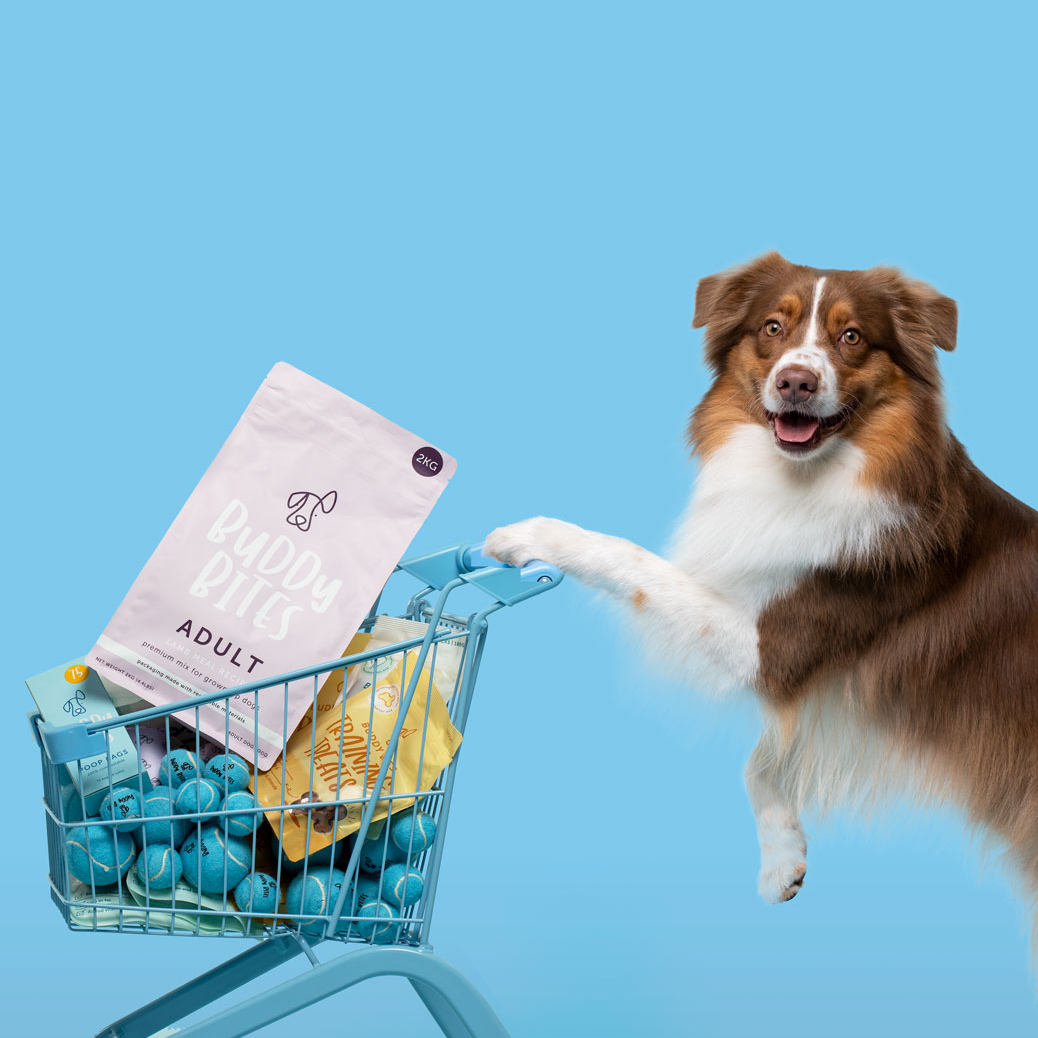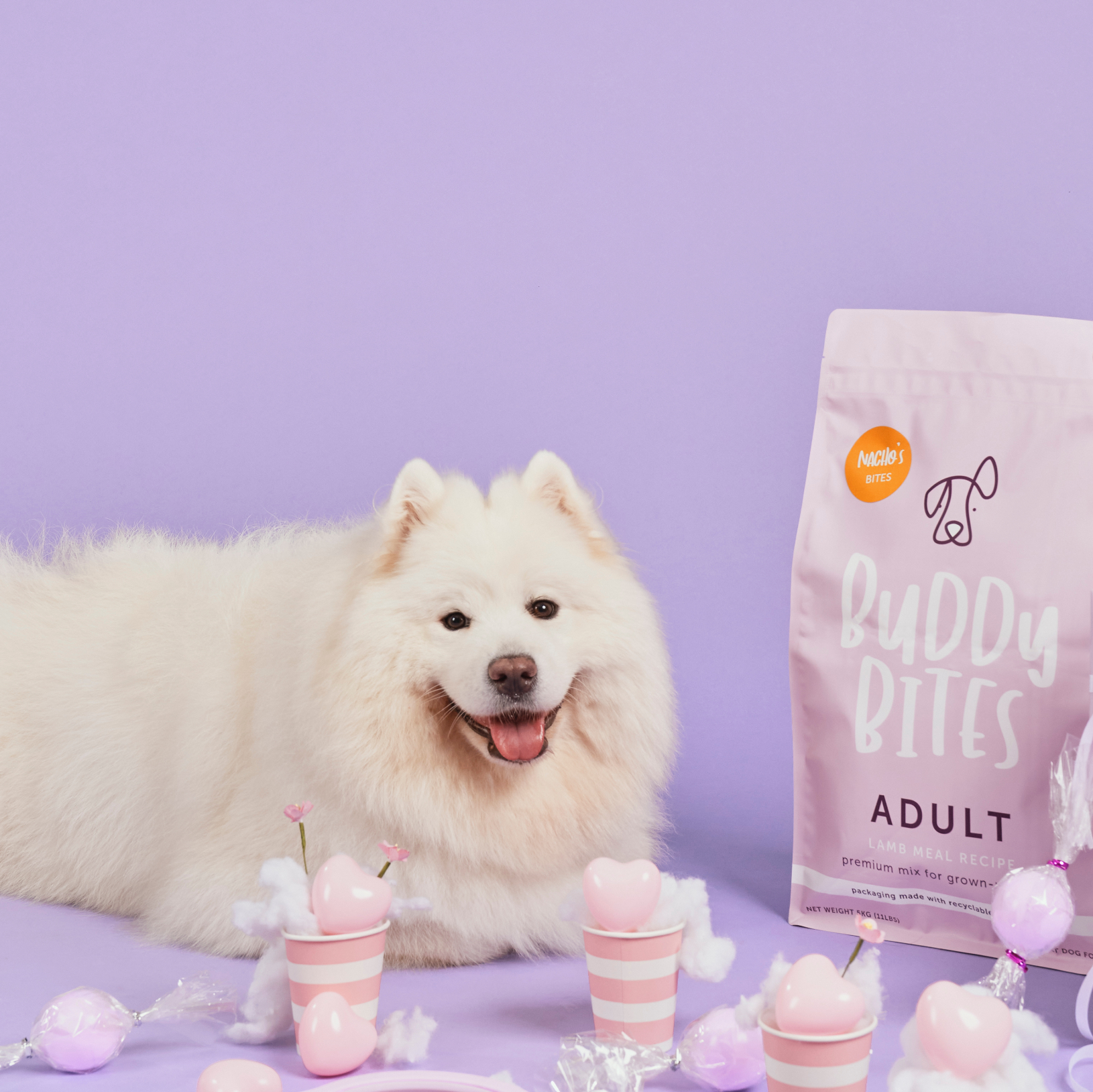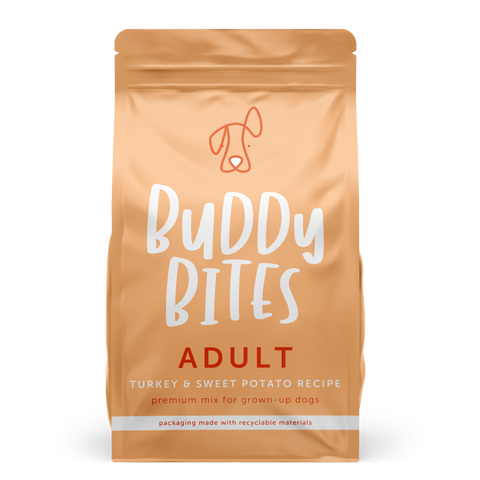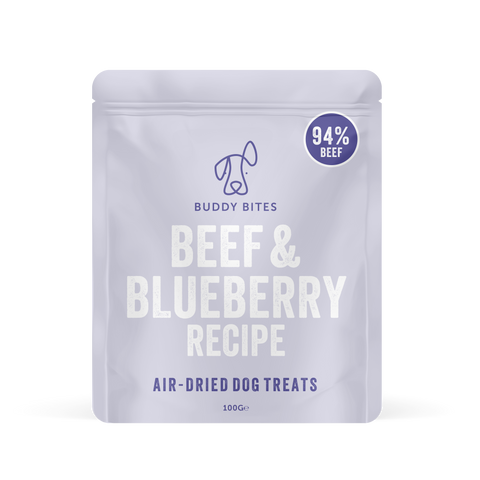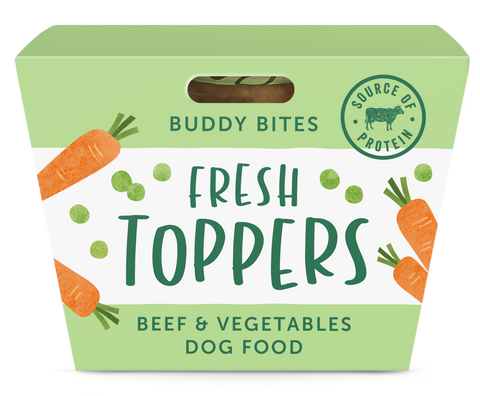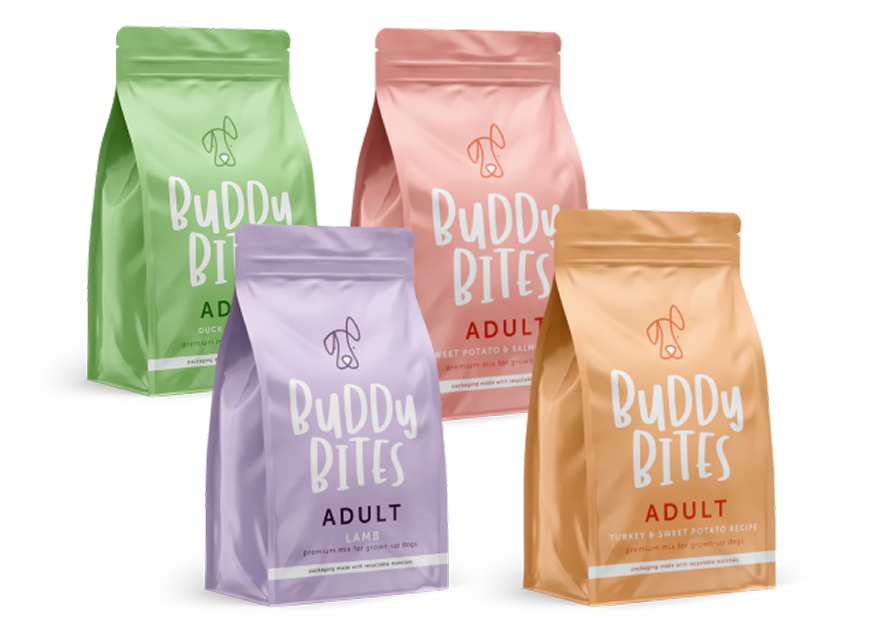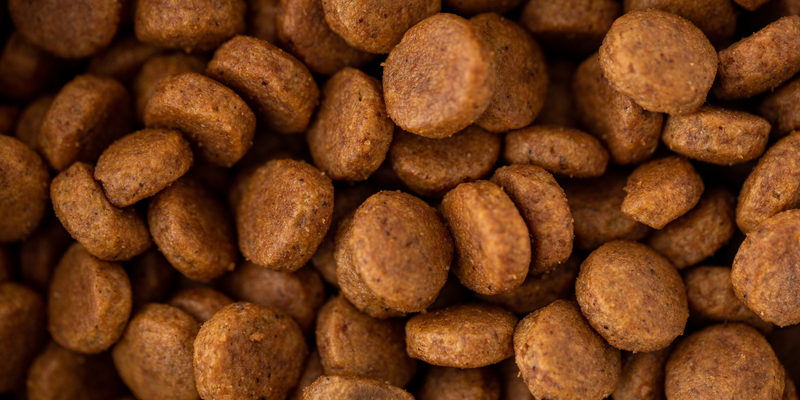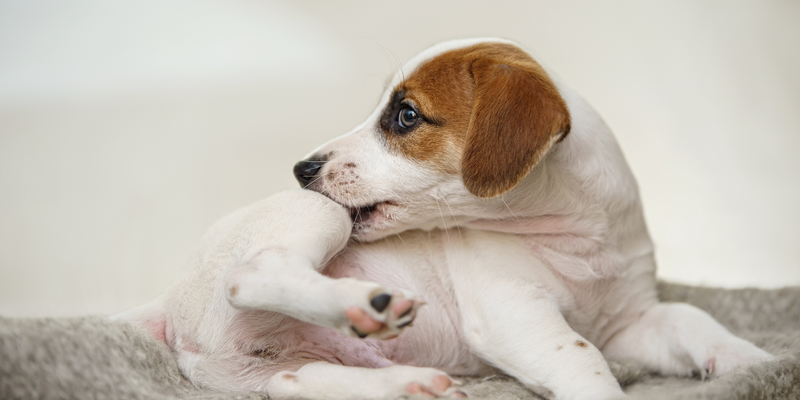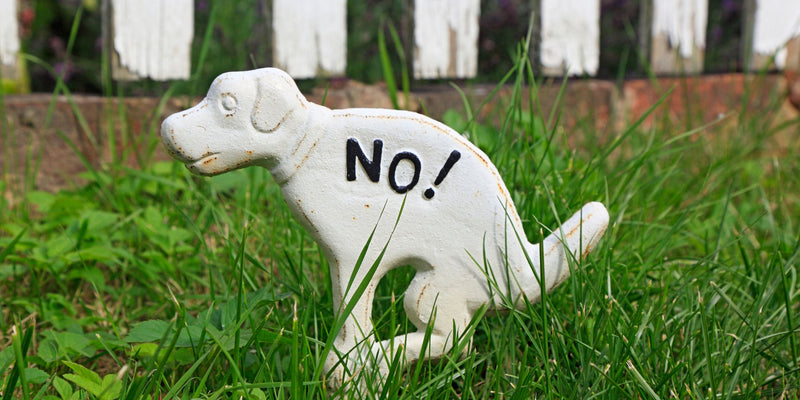Myth-busting: Grain-Free Diets
May 22, 2022
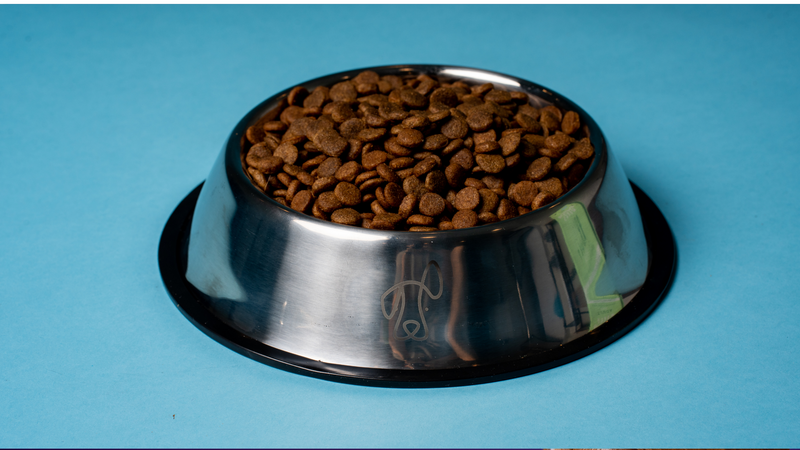
Myth-busting - Grain Free Diets
Here is something you may not have heard – According to a study done over 14 years, keeping your pet at a healthy weight by maintaining a controlled amount of high-quality food can add almost 2 years to their life!
And here is something you are more likely to have heard – “Grains are bad for your dog; you should offer a grain free diet”.
For both humans and dogs, the toughest part of healthy eating is knowing for sure what is healthy. There is an abundance of choice out there for all of us, whether buying for ourselves or our pets, the aisles in the supermarkets are endless! So, it seems, are marketing budgets! There is such a huge amount of money spent on marketing food, simply based on current trends or fads, that we as consumers end up basing our choices on this marketing, as opposed to research or science. One such choice (or should I say, ‘fad’) is the claim that grain is to be avoided in a dog’s diet.

Myth #1
Myth: Grains are used as a cheap ‘filler’ in dog food.
Truth: Grains, such as wheat and corn are excellent sources of protein, minerals, vitamins and fiber.
Let’s take a quick look at corn. Corn is a fantastic source of energy for your dog and it is tough to find a better ingredient in supplying energy, due to the fact it is 80% carbohydrate. Of that 80%, 95% of this carbohydrate is digestible by your dog. Corn also contains fat, which is high in linoleic acid, a very important ingredient for healthy coat and skin. Corn gluten is what provides the protein and is highly digestible. It also contains amino acids that complement meat protein sources. Whilst corn should not be the main protein source for a dog food recipe, it certainly seems to have a lot of benefits for a ‘cheap filler’.
In a similar way that corn gluten provides the corn’s protein, wheat gluten is the protein within wheat and is a staggering 99% digestible! There are only a few protein sources that can boast this digestibility. A lot of figures so far, but what does this mean for your dog? When referring to digestibility, it is what portion will be absorbed by the small intestine. So, the higher the digestibility, the less of this food there will be travelling to the colon, resulting in less gas, stool odour and overall better stools.
Myth #2
Myth: Corn is not digestible
Truth: Whilst whole corn cannot be digested by a lot of pets, when corn is ground thus separating it into its parts (protein, carbs and fat), it is actually highly digestible.
Myth #3
Myth: Many pets are allergic to grains like corn and wheat.
Truth: Recent studies have shown that only 1.5% of adverse reactions to food are due to corn.
The fact is that grains are a great source of a variety of nutrients that are essential to a healthy dog’s diet – protein, carbohydrate, fats, minerals. Your pet has complicated nutritional needs and requires this variety to keep them fighting fit. There has been a huge marketing push of late to convince consumers that a ‘grain-free’ diet is better for your dog but grain content is only one of several factors to consider when choosing your dog food.
The ‘anti-grains’ movement could be likened to the notion of cutting carbs to lose weight as a human. It is a very easy scapegoat but is one part of what needs to be a very diverse diet to support a healthy person. But, with a huge marketing budget behind it, consumers can be convinced that carbs are the problem and remove them from their diet, replacing with other things that are far worse and then wondering where they went wrong!

Myth #4
Myth: Grain-free diets are healthier for dogs
Truth: If your dog is genuinely allergic to a particular grain, they are better eating a grain-free diet. However, recipes that remove grains will often replace them with tapioca or potato, both of which have far lower nutritional value.
Studies have shown that carbs are NOT the enemy for us humans and grains are NOT the enemy for our furry friends. In fact, recent studies carried out have shown that not only is grain-free not healthier for your dog, it can actually be WORSE.
In 2018, the FDA announced that it was investigating the connection between dilated cardiomyopathy (or DCM) and certain ‘grain-free’ recipes. These recipes had replaced grains with a high proportion of lentils, pulses and potatoes as main ingredients (the first 10 ingredients on the packaging). Whilst the discussion on this topic is still ongoing, the notion that grains are the enemy is becoming quickly dispelled. You may even have noticed some of the global pet food brands that have (in the past) been strongly opposed to grain in their diets, launching a ‘Friendly Grains’ recipe as they quietly shift away from that rhetoric.
Every pet owner should do their best for their pet as they are part of the family, but research on matters of diet and health should go beyond social media and, as ever, any concerns should be raised with your vet.
Hope this is helpful! Cheers, Chris
Information sourced from Risius Family Veterinary Services
